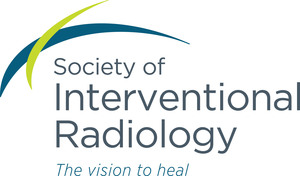Marshall E. Hicks, M.D., FSIR, Begins Term as SIR President; New Executive Council Members Named During SIR's 37th Annual Scientific Meeting in San Francisco
SAN FRANCISCO, March 28, 2012 /PRNewswire-USNewswire/ -- Marshall Hicks, M.D., FSIR, head of the division of diagnostic imaging at the University of Texas MD Anderson Cancer Center in Houston, assumed office as the 2012–13 president of the Society of Interventional Radiology during its 37th Annual Scientific Meeting in San Francisco, Calif. SIR, a national organization of nearly 5,000 scientists and allied health professionals dedicated to improving health care through minimally invasive treatments, also introduced a new slate of officers.
(Logo: http://photos.prnewswire.com/prnh/20100127/SIRLOGO )
"The Society of Interventional Radiology is committed to developing—and demonstrating the value of—care-changing minimally invasive treatments to improve health care for patients in this era of evidence-based medicine," said Hicks, who is MD Anderson's Levit Family Distinguished Chair in Diagnostic Imaging and professor of vascular and interventional radiology. "Interventional radiologists are responsible for much of the medical innovation and advancement of minimally invasive treatments that are commonplace today. This year, we will continue to measure, document and communicate the value this specialty brings to health care administrators, to insurers, to legislators—and most importantly, to patients," he added.
SIR's 2012–13 officers include
- President-elect Scott C. Goodwin, M.D., FSIR, University of California Irvine Medical Center, Orange, Calif.
- Secretary James B. Spies, M.D., MPH, FSIR, Georgetown University Medical Center, Washington, D.C.
- Treasurer Charles E. Ray Jr., M.D., FSIR, University of Colorado, Denver, Colo.
- Immediate Past President Timothy P. Murphy, M.D., FSIR, Rhode Island Hospital, Providence
Executive Council councilors include George A. Fueredi, M.D., FSIR, Great Lakes Radiologists, Lake Geneva, Wis., health policy and economics; John A. Kaufman, M.D., FSIR, Dotter Interventional Institute, Portland, Ore., SIR Foundation chair; Gary P. Siskin, M.D., FSIR, Albany Medical Center, N.Y., Annual Scientific Meeting; Daniel Siragusa, M.D., Shands Jacksonville, Jacksonville, Fla., graduate medical education; Brian Funaki, M.D., FSIR, University of San Francisco, San Francisco, Calif., post-graduate medical education; Matthew S. Johnson, M.D., FSIR, Indiana University School of Medicine, Indianapolis, member services; and John Cardella, M.D., FSIR, Geisinger Health System, Danville, Pa., standards.
Councilors-at-large include Suresh Vedantham, M.D., FSIR, Mallinckrodt Institute of Radiology, Saint Louis, Mo., Jeff H. Geschwind, M.D., FSIR, Johns Hopkins Hospital, Baltimore, M.D. and Sanjay Misra, M.D., FSIR, Mayo Clinic and Foundation, Rochester, Minn. Ex-officio members include John D. Fulco, M.D., FSIR, Schenectady Radiologists P.C., Schenectady, N.Y., AMA delegate and Ziv J Haskal, M.D., FSIR, University of Maryland School of Medicine and University of Maryland Medical Center, Baltimore; editor, Journal of Vascular and Interventional Radiology.
More information about the Society of Interventional Radiology, interventional radiologists and how to find an interventional radiologist in your area can be found online at www.SIRweb.org.
About the Society of Interventional Radiology
Interventional radiologists are physicians who specialize in minimally invasive, targeted treatments. They offer the most in-depth knowledge of the least invasive treatments available coupled with diagnostic and clinical experience across all specialties. They use X-ray, MRI and other imaging to advance a catheter in the body, such as in an artery, to treat at the source of the disease internally. As the inventors of angioplasty and the catheter-delivered stent, which were first used in the legs to treat peripheral arterial disease, interventional radiologists pioneered minimally invasive modern medicine. Today, interventional oncology is a growing specialty area of interventional radiology. Interventional radiologists can deliver treatments for cancer directly to the tumor without significant side effects or damage to nearby normal tissue.
Many conditions that once required surgery can be treated less invasively by interventional radiologists. Interventional radiology treatments offer less risk, less pain and less recovery time compared to open surgery. Visit www.SIRweb.org.
The Society of Interventional Radiology is holding its 37th Annual Scientific Meeting March 24–29 at the Moscone Center (North) in San Francisco, Calif. The theme of the meeting is "IR Evidence," with the focus on gathering, presenting and discussing the results of relevant and care-changing investigations.
SOURCE Society of Interventional Radiology
WANT YOUR COMPANY'S NEWS FEATURED ON PRNEWSWIRE.COM?
Newsrooms &
Influencers
Digital Media
Outlets
Journalists
Opted In





Share this article